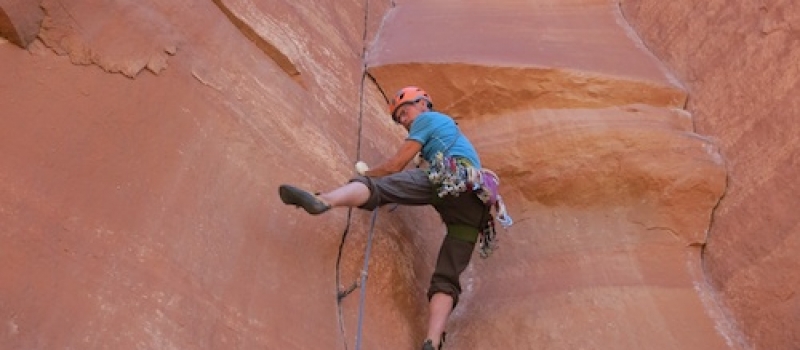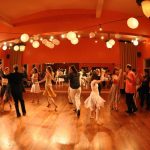Local Limelight: Roger “Pokey” Amory
Roger “Pokey” Amory, grew up in Freeport, lives in Falmouth, and has been climbing for 40 years. He loves classic, original, overgrown routes that require critical thinking, and thinks Rumney is just the worst. He was the belayer for the first climbing competition in the country back in 1989 and continues to climb on with psyche and one solid attitude. Read more here:
So your real name is Roger, but people call you Pokey, how’d that happen?
“My parent’s friends had a dog named Pokey, that they named after the children’s story called The Pokey Little Puppy. We’d go over to their house, and while they were having cocktails, I’d be playing with the dog. When it was time to leave, they’d call my name, but I wouldn’t come. So they’d call the dog. Pokey would go running, and I’d go running after. That’s how they’d get me to leave.”
That’s a great story. Did you grow up around here?
(Nods), grew up in Freeport.
When did you start climbing?
[/vc_column_text][/vc_column][/vc_row]I led my first climb in 1980. I was top-roping well before that, but I consider my climbing to have started when I first led a route. This was all well before climbing gyms even existed.
Crack Climb, wearing a swami belt! Joshua Tree 1984
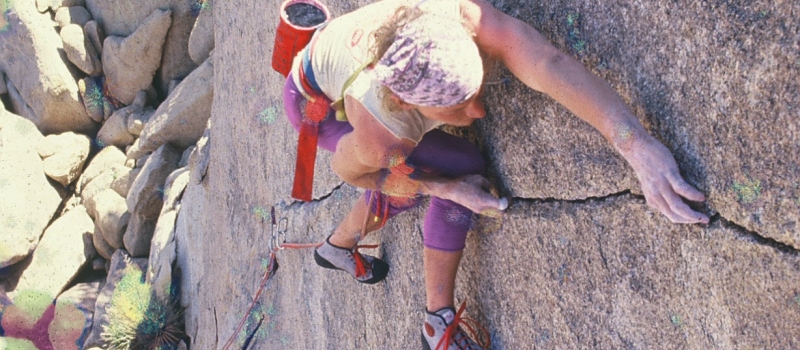
What’d you think about climbing gyms when they first started emerging?
I walked into the MRG (Maine Rock Gym) the month it opened, and the cool thing was that it brought the tribe together; the local rock climbers. There we all were, all in the same space. And that was cool, for sure.
What do you “use” the gym for?
I see the gym as a place to train, and a place to make contact with the community. See people I haven’t seen in a while. I enjoy the commonality of it.
Where’s your favorite place to climb?
In the world? Smith Rock in Central Oregon, near Bend. I was there a lot in the 80’s. It was a really cool time to be there, it was really the first sport-climbing place in the country. I was an early adherent to sport-climbing. I went back this spring and spent a month there, and saw a lot of the same people.
What do you love about climbing?
I love the focus and concentration it requires of me. I really love the partnership— going and doing long routes with a good partner or good friend. I’ve been obsessed my whole life with climbing.
Where’s your favorite place to climb around here? Rumney?
I hate Rumney. Rumney is like a crowded Disney Land. The only good thing about Rumney is that it takes crowds away from Cathedral.
Oh! (Laughter) Okay so Rumney: no. Cathedral: yes. Where else do you like to climb? Let’s say within five hours?
I love the schist in Evan’s Notch. And I enjoy dirty wet climbing routes, I think in a way that some people don’t. I love the absurdity of it. I like old neglected classics that are overgrown, all covered in lichen and crap. I think it brings out a whole ‘nother skill set that I enjoy using, that climbing at a place like Rumney doesn’t have.
Asking myself “Where does the climb go? Is this gear going to hold? Is this rock going to fall?” are challenges I really enjoy.
Shelf Road in Colorado - 1987
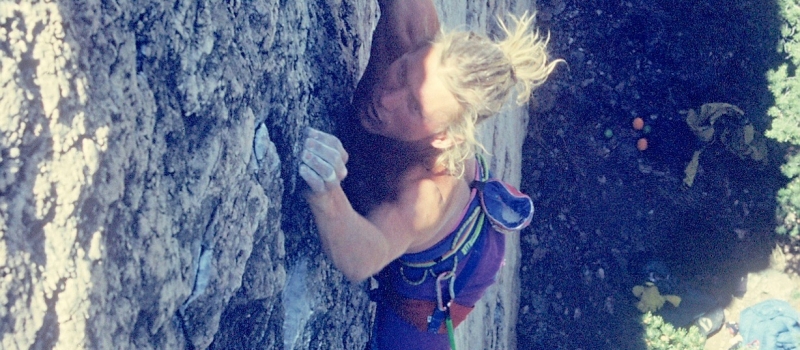
Oh hell yeah. So you’ve been climbing a long time. Was there ever a time you felt you hit a plateau in your climbing? A mental block of any kind?
I reached a plateau in the late 80’s. I wasn’t able to get through it because I wasn’t willing to put in the time. None of us trained back then.
How’d you move on?
I never overcame it. That was when I was at the peak of my game. That was 1989. I stopped climbing for 10 years after my daughter was born. Came back to it and never been able to climb the grade that I could.
You seem to be in a place of acceptance about it.
(Laughs) I’m 53. My battle is not to get injured. I’m not getting stronger, and I’ll never climb like I did back in the day, and that’s fine! There were very few Americans training; we just climbed a lot. But then there was a revolution in climbing in the 80’s. Things changed radically.
What did you think of the revolution? What changed?
For most climbers in the early 80’s, there wasn’t much of an audience. But by the late 80’s there’d been a competition in Italy in Arco, and we’d had a competition at the City of Rocks. People were starting to get sponsorship and suddenly there was an audience and money in a way that there hadn’t been. And it changed things. We were a very distinct subculture that kind of wanted nothing to do with “the man” and that really started to change in the late 80’s.
We were a very distinct subculture that kind of wanted nothing to do with “the man” and that really started to change in the late 80’s.
Those spandex though....
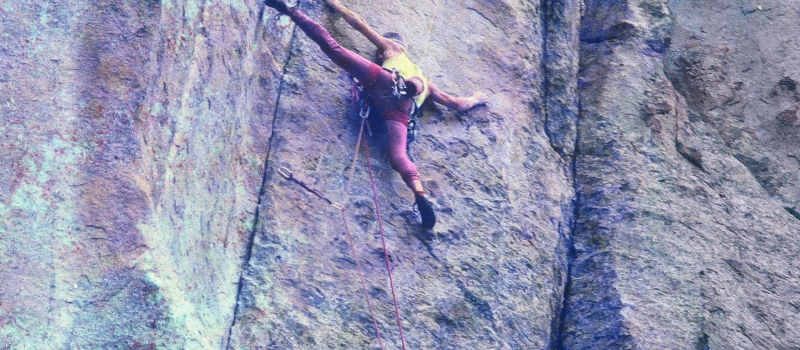
Tell me more.
The whole notion of “athlete” or “ambassador,” that professional climbers are being referred to now just rubs me the wrong way. And there’s this corrupting factor, and I think it’s money. But for the most part climbers are climbing because they love climbing.
Have you ever had a serious injury from climbing?
I had a catastrophic fall in 1983; I was soloing an ice climb in Utah, and I fell about 150 feet. I broke both feet, drove my right femur into the tibia and had a skull fracture. I haven’t done that again. I was young and stupid. It was bad judgment…total bad judgment.
Yikes. Stoked that you’re alive. How do you avoid accidents now?
Vigilance. You HAVE to pay attention. It is the lapse of attention that will kill you or kill your partner. Guard against complacency. Complacency kills. Most of the time when someone dies, they’re from mistakes that all of us can make. Most climbing accidents are not equipment failure.
Yeah totally. Human error.
Lapses of attention due to complacency.
How have you maintained your psyche over all these years?
When I’m climbing well, it’s pretty easy to stay psyched, and when I’m not climbing well, I’m psyched by the people around me. I’m not getting stronger or better, I’m gradually getting weaker , so I don’t have performative goals that I’m disappointed by not meeting; it’s the relationships that continue. I love being outside with friends. I don’t have to climb well. If other people are psyched then I’m psyched.
This was awesome.
Indian Creek, Utah - 2014
